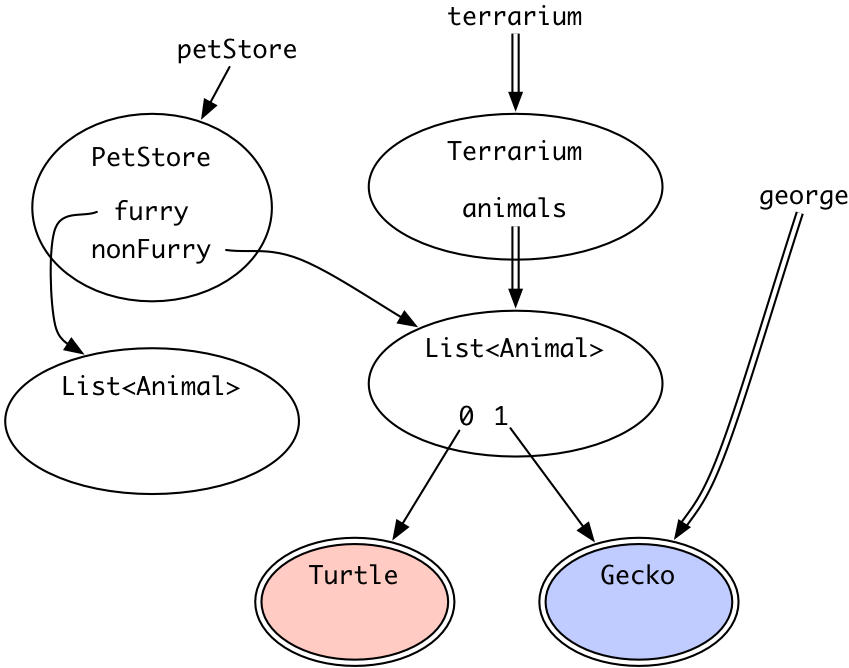What Is Immutable Strings and Exactly How It Works
In the realm of programs, comprehending the idea of immutable strings is paramount for developing robust and secure applications. Immutable strings refer to strings that can not be altered after they are produced, making certain data integrity and predictability within the code.
The Essentials of Unalterable Strings
Immutable strings, as a basic idea in programming, are personality series that can not be transformed once they are produced. This suggests that once a string is assigned a worth, that value can not be altered. In languages like Python and Java, strings are immutable things, causing various implications in terms of memory administration and data honesty.
Among the essential advantages of unalterable strings is that they supply a complacency in data control. Because the content of an unalterable string can not be modified, it makes certain that the original information continues to be undamaged, decreasing the threat of unintended changes during program execution (Why are strings immutable in Java?). This residential or commercial property likewise streamlines debugging procedures, as programmers can rely on that when a string is defined, its value will not be accidentally modified
When a brand-new string is created based on an existing one, instead than customizing the initial string, the brand-new worth is stored independently. On the whole, understanding the basics of immutable strings is vital for mastering programming ideas and enhancing code effectiveness.
Benefits of Unalterable Strings
Structure upon the safety and efficiency benefits of unalterable strings, their benefits include boosting code dependability and simplifying concurrent programs tasks. By being unalterable, strings can not be customized after creation, which eliminates the threat of unplanned changes in the information they save. This integral immutability makes sure that when a string is developed, its value stays continuous throughout the program's implementation, minimizing the chances of bugs triggered by unexpected changes.
Furthermore, unalterable strings add to code dependability by making it simpler to reason concerning the state of a program. Because strings can not be altered, designers can trust that a string will constantly hold the same value, streamlining debugging and upkeep initiatives. This predictability results in a lot more reliable and secure codebases.

Execution in Programming Languages
Within various programs languages, the unification of immutable strings is a basic element that influences exactly how information is managed and manipulated within code frameworks. The application of unalterable strings varies throughout different programming languages, with each language supplying its own mechanisms to support this principle.

On the other hand, languages like C and C++ do not have built-in support for unalterable strings. Designers in these languages have to by hand implement immutability by applying rules within their code to stop straight modifications to string things.
Finest Practices for Dealing With Unalterable Strings
When dealing with immutable strings in shows languages like Java and Python, sticking to finest techniques makes sure safe and secure and effective information manipulation. One of the crucial finest techniques is to make use of StringBuilder or StringBuffer as opposed to straight manipulating strings, particularly when handling comprehensive concatenation operations. These courses give mutable choices for string manipulation, assisting to avoid unnecessary memory appropriations and boosting performance.
In addition, when working with sensitive data such as passwords or API secrets, it is vital to avoid storing them as plain text in immutable strings. Making use of safe and secure storage space mechanisms like char arrays or specialized libraries for dealing with sensitive information helps alleviate safety threats connected with unalterable strings.
Real-world Applications and Examples
Exploring functional applications of immutable strings in various markets exposes their significant effect on information integrity and system reliability. In the medical care market, immutable strings play a crucial function in making sure the safety and discretion of person information. By avoiding unauthorized alterations to delicate information such as clinical documents and prescriptions, immutable strings aid keep compliance with stringent personal privacy click laws like HIPAA.
Financial institutions additionally take advantage of the immutable nature of strings to boost the safety and security of client information and transaction documents. Immutable strings help prevent fraudulence and unapproved changes to financial info, providing a durable defense versus cyber hazards and making sure the trust fund and self-confidence here are the findings of customers.
Conclusion
Best practices for functioning with immutable strings consist of avoiding straight alterations and utilizing approaches that return brand-new string items. Real-world applications of unalterable strings consist of information security, caching, and string adjustment tasks.
Unalterable strings refer to strings that can not be altered after they are developed, guaranteeing data integrity and predictability within the code. When a brand-new string is developed based on an existing one, instead than modifying the initial string, the brand-new value is saved separately.In languages like Java and Python, strings are unalterable by default, meaning that as soon as a string item is produced, its worth can not be changed - Why are strings immutable in Java?. Best methods for working with immutable strings consist of staying clear of direct alterations and making use of techniques Resources that return brand-new string objects. Real-world applications of immutable strings consist of data file encryption, caching, and string adjustment jobs
Comments on “Why Are Strings Immutable in Java? Comprehending the Core Concepts”